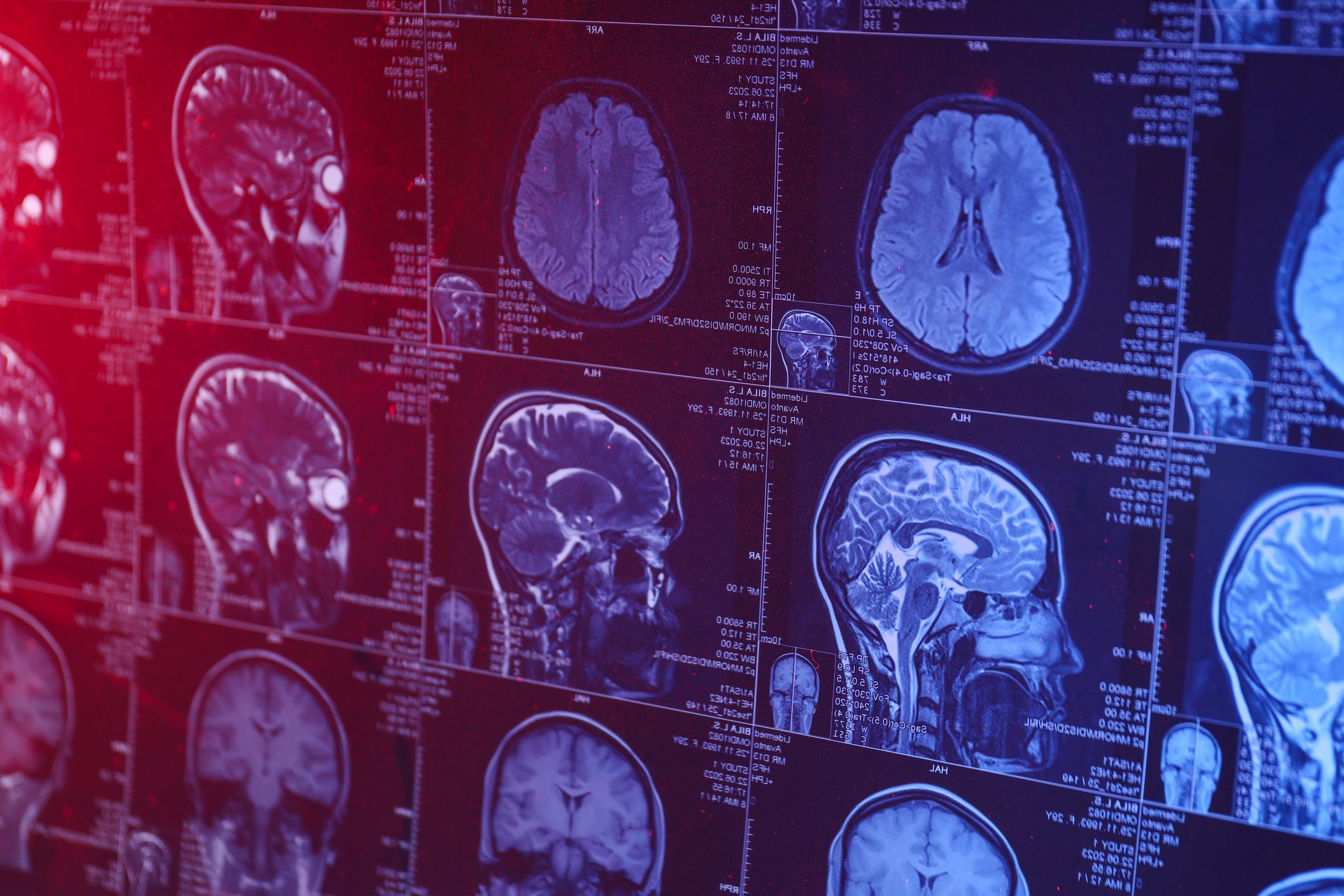Many people wonder whether brain death is really dead. The patient is still breathing, his cheeks are ruddy, and yet, according to the doctors, he is dead. It’s hard to make a decision about organ donation then.
Do I want to be an organ donor yes or no? Most people have doubts and have not had anything recorded in the Donor Register. One of the reasons for this doubt is the fear of being declared dead too early, says Bert Elberse, spokesperson for NIGZ Donor Information.
“Am I really dead when the doctors determine brain death, people ask me on the phone. And even if they are not familiar with the term brain death, people often know that a ‘special kind of death certificate’ is used for organ donation. Why is that necessary, dead is dead, isn’t it?”
“Brain death is also a difficult concept,” says Gert van Dijk, professor of clinical neurophysiology at the Leiden University Medical Center. Doctors can only declare someone brain dead if they are sure that the brain has been irreparably damaged and a series of tests have been performed (see box on next page). The brain-dead state is artificially stretched to keep the organs in good condition for donation. The breathing, heart rate and circulation are kept going with devices. “Basically, brain dead,” says Van Dijk, “is a pause in the dying process.”
His hand felt warm
“If there is no brain activity, then there is nothing,” says Anny Blauw. “I told my husband and daughter that when the doctors said my son Dennis was not going to be okay. I am a nurse, for me the medical situation was a bit more understandable. Brain death, that’s the end, but for my husband it was especially difficult to reconcile with the warmth Dennis still radiated. He held Dennis’ hand. It felt warm. How could he be dead then? I have often repeated it: without brain activity there is really nothing. Eventually it got through.”
It has been five years since the then 24-year-old son of Anny and her husband Herbert had a car accident during slippery conditions. The car crashed into a tree and the car door slammed into the side of Dennis’ head. The brain was damaged beyond repair.
Not registered as a donor
“In your brain”, says Professor Van Dijk, “your whole being is in fact locked up. Your personality, your memory, your emotions, even your reflexes, almost everything originates there. If they die, you are no longer there as a person. But – and that’s the hard part – those who are declared brain dead look anything but dead. Because all kinds of devices take over vital functions, the cheeks keep a healthy color and the chest continues to rise and fall regularly. And the body stays warm. That, of course, goes against all the familiar characteristics of ‘death’: namely cold, white and silent.”
For relatives, the concept of brain death is sometimes difficult to comprehend, for doctors it is not that complicated medically, but sometimes it is procedurally. Doctors must ask the next of kin for permission for organ donation. According to the law, they are only allowed to do this once brain death has been established. But, and there it is, the procedure to determine brain death is in fact only relevant if someone is in principle eligible for donorship.
This means that, for example, someone has not had cancer or has another disease that makes the organs unsuitable for donation.
Professor van Dijk: “That creates the strange situation that you have to do extra tests on a patient, but if the family then asks why that is, you are not allowed to ask whether the organs are available for donation. You can only say: we do these tests to determine brain death. If you say that the patient can donate organs for donation, the family may say: but we do not opt for organ donation. Then you don’t have to do the tests anymore.”
Before the doctors even started talking about it, the Blauw family had discussed whether they wanted to make Dennis’ organs available for donation. Mother Anny says that two of Dennis’s uncles were the first to bring it up. “It hadn’t occurred to me yet, even though I work in a hospital myself. But it was about my son and I was mostly Dennis’ mother, despite my medical knowledge.” Anny and daughter Marlies had registered as donors, Herbert had not registered and neither had Dennis. “I had discussed it with Dennis once, but he was so young, he didn’t care about it.”
Postpone the decision
The family tried to imagine what Dennis himself would have wanted. And soon came to the conclusion that it would fit with Dennis’ helpful, sociable nature to use his organs to make another life healthier and easier. “The moment”, says Anny, “that the doctors brought up about it, was very drastic. If you’re talking about it as a family, it’s still theoretical, you don’t really have to make the decision yet.”
The doctors brought up organ donation after calling the family around 6 a.m. that Dennis was deteriorating rapidly. Upon arrival at the hospital, an interview followed and the family was officially asked for permission. “I immediately said yes,” says Anny, “but I could only do that for myself. Herbert and Marlies had to make their own final decision.” Anny praises the guidance in the hospital where Dennis was admitted, the University Medical Center Groningen. “We were told that we could reverse our decision until the last minute, even when he would be wheeled into the operating room. That gave me peace of mind.”
The last concern
Herbert and Marlies also agreed. Then the neurologist came to officially establish brain death. The moment the neurologist determines brain death is officially the moment of death. Although that is not the moment when the deceased also breathes his last – another aspect of brain death that goes against how most people see death and would like to experience death with their loved ones, namely until the very end. After the official determination of brain death, the family can say goodbye at the bed, after which the deceased is taken to the operating room to remove the organs. After that, the equipment turns off and breathing stops, after which the heart stops beating. “Stopping the ventilator can be seen as the end of the pause in dying,” says Professor Van Dijk.
For the Blauw family, saying yes to donation was simultaneously accepting that Dennis’ life could no longer be saved. “Besides being intensely sad, saying yes also felt like a relief,” says Anny Blauw. “It helps you take the next step, it helps you see the inevitable. The feeling that we were doing the right thing by donating his organs only grew stronger in the hours after our decision. We were kept fully informed of everything, including, for example, when those who would receive Dennis’ organs had arrived at the hospital in their own place and were being prepared for the operation.”
They didn’t find it difficult that they couldn’t be there when Dennis breathed his last. “We were told exactly what was going to happen,” Anny says, “and Dennis didn’t suddenly leave the operating room. First they let us know that he would leave in half an hour, later they came to say that we still had ten minutes to sit with him. We also knew that Dennis would come back to us for a while and that we could provide the last care ourselves. That last worry, that was our last goodbye.”
Shortage of organ donors
In 2007, a record number of organ transplants were performed in the Netherlands: nearly 1,100 people received a donor organ, which was 28 percent more than in 2006. On January 1, 2008, there were 1,284 people on the waiting list for an organ (on January 1, 2007, this was there 1441). Some of the people on the waiting list die of their disease before an organ is available. Six in ten adults have not made known their wishes about donation to the Donor Register. The family decides about them. In 2006 it turned out that 70 percent of the next of kin do not agree to organ donation when they have to make a decision. The Ministry of Health, Welfare and Sport has an Organ Donation Master Plan ready to reduce the shortage of organ donors.
This is how brain death is diagnosed
Neurologists call a person brain dead when the brainstem and cerebral cortex are no longer active. To determine that, they do various tests. The sequence begins with brainstem testing. The so-called pupillary test is very telling, in which the doctor shines a light into the eyes and sees whether the pupil shrinks in response to the light. One of the most important tests is that of breathing: for example, checking whether a patient will cough when the windpipe is stimulated.
The cerebral cortex is examined with an electroencephalogram, an EEG. If any brain activity can still be seen, a patient is not brain dead. Only when all these tests show that both the cerebral cortex and brainstem are no longer active, is the last test to determine brain death, the so-called apnea test. The artificial respiration is then disconnected to see if breathing resumes spontaneously. If not, the patient is officially declared brain dead.
When medical action is meaningless
Organ donation is also possible without being diagnosed with brain death. Some potential donors cannot be declared brain dead, for example because they do not have a brain injury. It has been established for these people that further medical treatment is futile and that they will die if they are taken off the ventilator. They can initiate a so-called non-heart beating procedure for organ donation.
The organs are taken out the moment the heart stops beating after closing the ventilator, in other words if there is non-heart beating. In fact, those patients die in the ‘normal’ way. You must act quickly, because if the heart no longer beats, the quality of organs deteriorates quickly.
There is time for consultation with the family and consultation of the Donor Register while the patient is still on a ventilator.
Knowing more?
NIGZ Donor Information provides information on behalf of the government. View on www.donorvoorlichting.nl or call. 0900-82 12 166 (local rate).
















